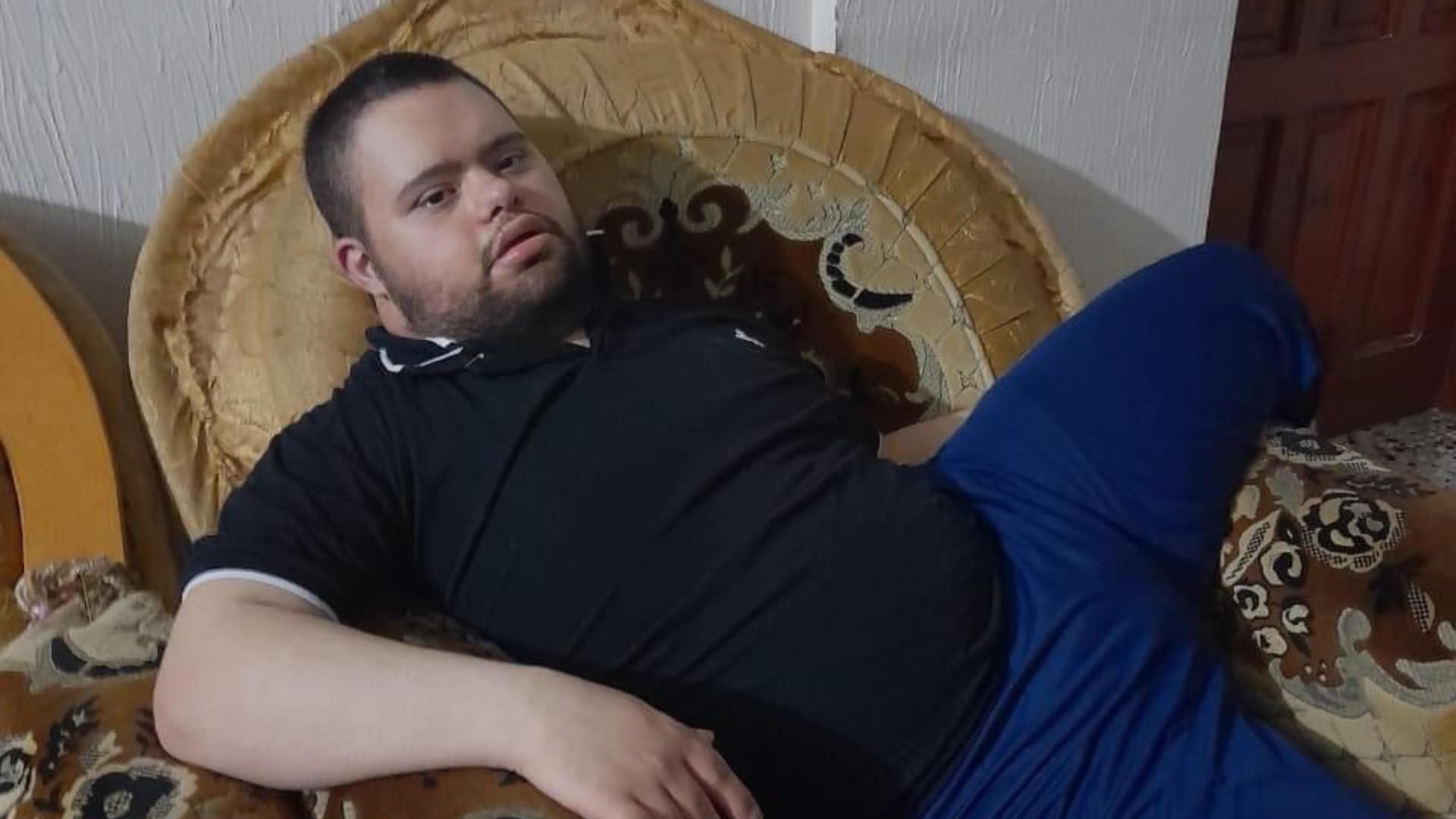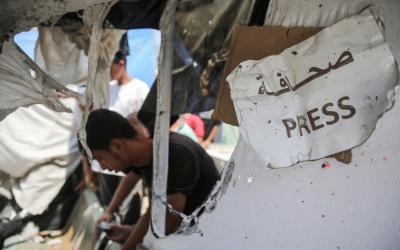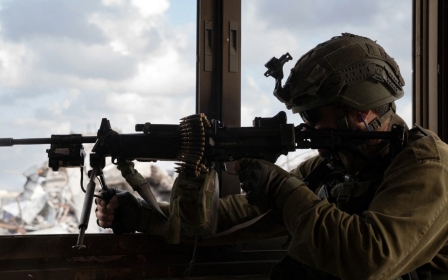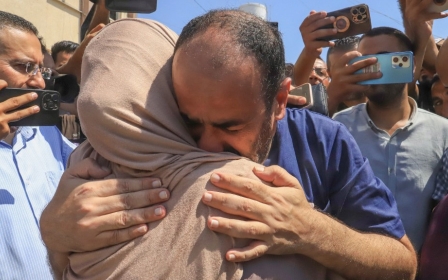War on Gaza: Israeli army admits abandoning Palestinian man with Down syndrome

The Israeli army has admitted that a Palestinian man with Down syndrome who died after being attacked and injured by an army dog was abandoned by its soldiers.
The army's admission comes two weeks after Middle East Eye originally reported on the death of Muhammed Bhar following a raid by Israeli soldiers on his family home in eastern Gaza City's Shujaiya neighbourhood on 3 July.
His family told MEE they had been forced at gunpoint to leave behind the 24-year-old after he was mauled by the dog. Relatives described Muhammed as "like a one-year-old", and said he needed help eating.
Family members contacted the Red Cross daily for a week, pleading for Muhammed's release or medical treatment, but were told that the Israeli army was not cooperating.
After a week, and once Israeli troops withdrew from Shujaiya, they returned to find his decomposing body at their home.
New MEE newsletter: Jerusalem Dispatch
Sign up to get the latest insights and analysis on Israel-Palestine, alongside Turkey Unpacked and other MEE newsletters
The Israeli army initially told journalists it was checking into reports about Muhammed.
'At this point, the person remains, mostly likely, alone in the building'
- Israeli army spokesperson
But an army spokesperson told +972, the BBC and other outlets this weekend that soldiers left a man fitting his description after an RPG missile hit their tank, injuring soldiers and killing one.
"The force that was treating the person who was bitten in the apartment had to leave to provide treatment to the injured soldiers," the spokesperson said.
"At this point, the person remains, mostly likely, alone in the building."
The spokesperson added: "The IDF regrets the harm to civilians during the fighting."
'There is no Muhammed'
The Bhar family had been evacuated at least five times since 7 October when Israeli forces raided Shujaiya under the cover of heavy air strikes on 27 June.
On 3 July, Israeli troops raided their home where they had been besieged, first sending in dogs which attacked Muhammed and started to maul him, his mother Nabila Bhar has told MEE.

Once the soldiers entered, she said she pleaded with them to take the dog off her son as she tried to explain that he was disabled.
They eventually took Muhammed to a separate room where he was "humming in pain", his mother said.
"Now and then, they would open the door, look at him, and say 'Oskot' [Arabic for stay silent], then close it again," Bhar said.
"The soldiers then gestured to each other. A doctor who came with them entered the room, and Muhammed suddenly went silent."
Bhar suggests the doctor injected him with a sedative, but she could not see or hear him after that.
"I asked the soldier, 'Where is Muhammed?' He told me, 'Muhammed is gone.' I asked again, 'Gone where?' He answered, 'He's gone. There is no Muhammed," she said.
The family was then forced to leave the house, and Muhammed was left behind.
Body decayed
When they returned to the house, relatives found his body in the room where he had been kept, covered with blood and fluids seeping from his body as it began to decompose.
A tourniquet had been put on his wounded left arm, probably to stop the bleeding, his brother, Jebril, told MEE.
'I cannot bear to think of what they did to him, or how they left him to die like this'
- Nabila Bhar, Muhammed's mother
With hospitals in Gaza not operating and roads devastated by Israeli bombardment, Jebril was unable to call an ambulance or transport Muhammed's body to a cemetery.
"I had to bury him near the house," he said.
"There's about a one-metre space between our house and my uncle's. That's where I buried Muhammed."
His mother said she could not stop thinking of Muhammed's screaming and the image of him trying to free himself.
"I cannot bear to think of what they did to him, or how they left him to die like this."
Middle East Eye delivers independent and unrivalled coverage and analysis of the Middle East, North Africa and beyond. To learn more about republishing this content and the associated fees, please fill out this form. More about MEE can be found here.




